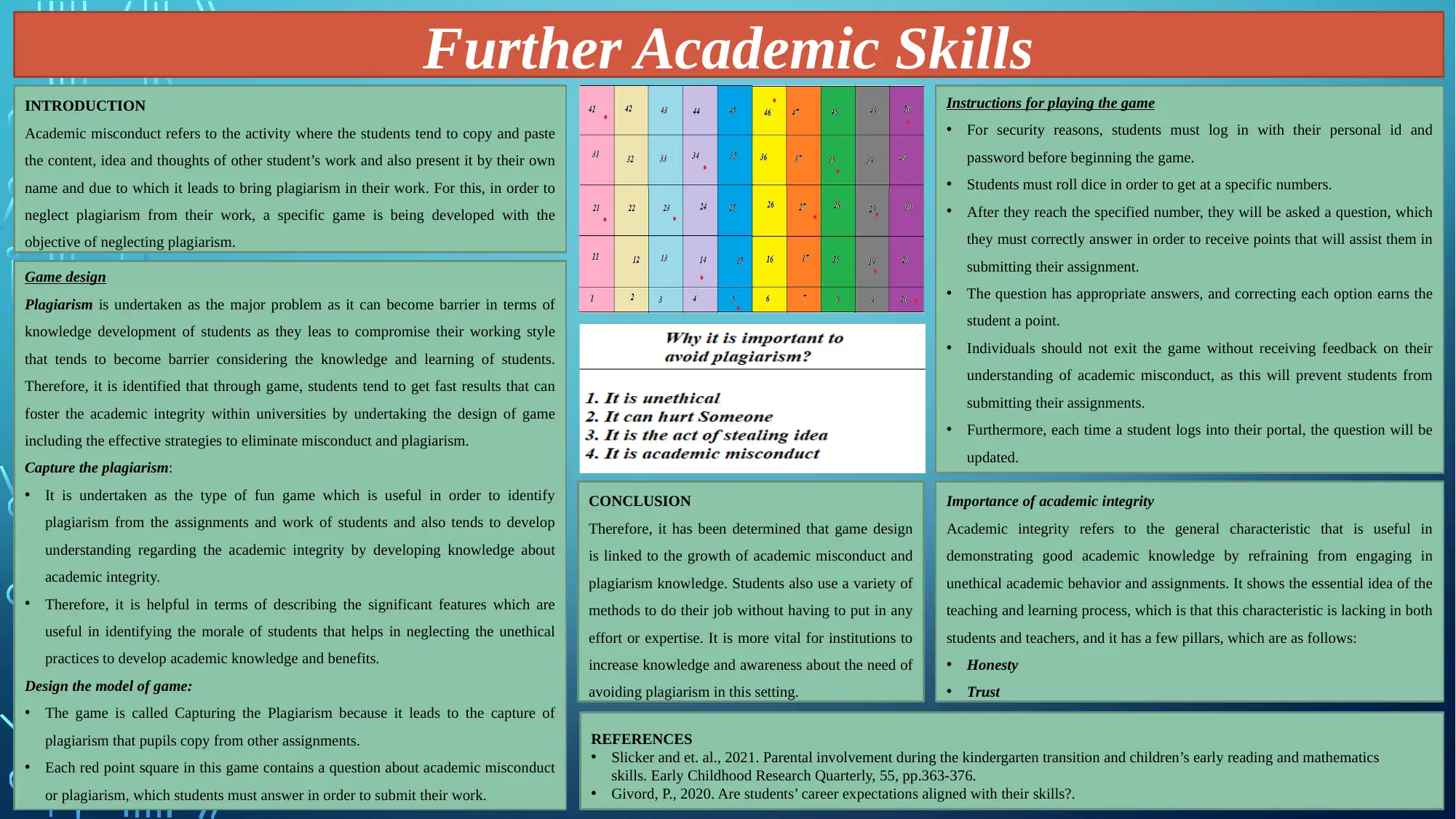Designing a Game to Foster Academic Integrity and Eliminate Plagiarism
VerifiedAdded on 2023/06/18
|1
|619
|128
AI Summary
This presentation discusses the development of a game to eliminate plagiarism and foster academic integrity. It explains the importance of academic integrity and the need to avoid plagiarism. The game design, instructions, and benefits are also discussed.
Contribute Materials
Your contribution can guide someone’s learning journey. Share your
documents today.
1 out of 1
![[object Object]](/_next/static/media/star-bottom.7253800d.svg)






